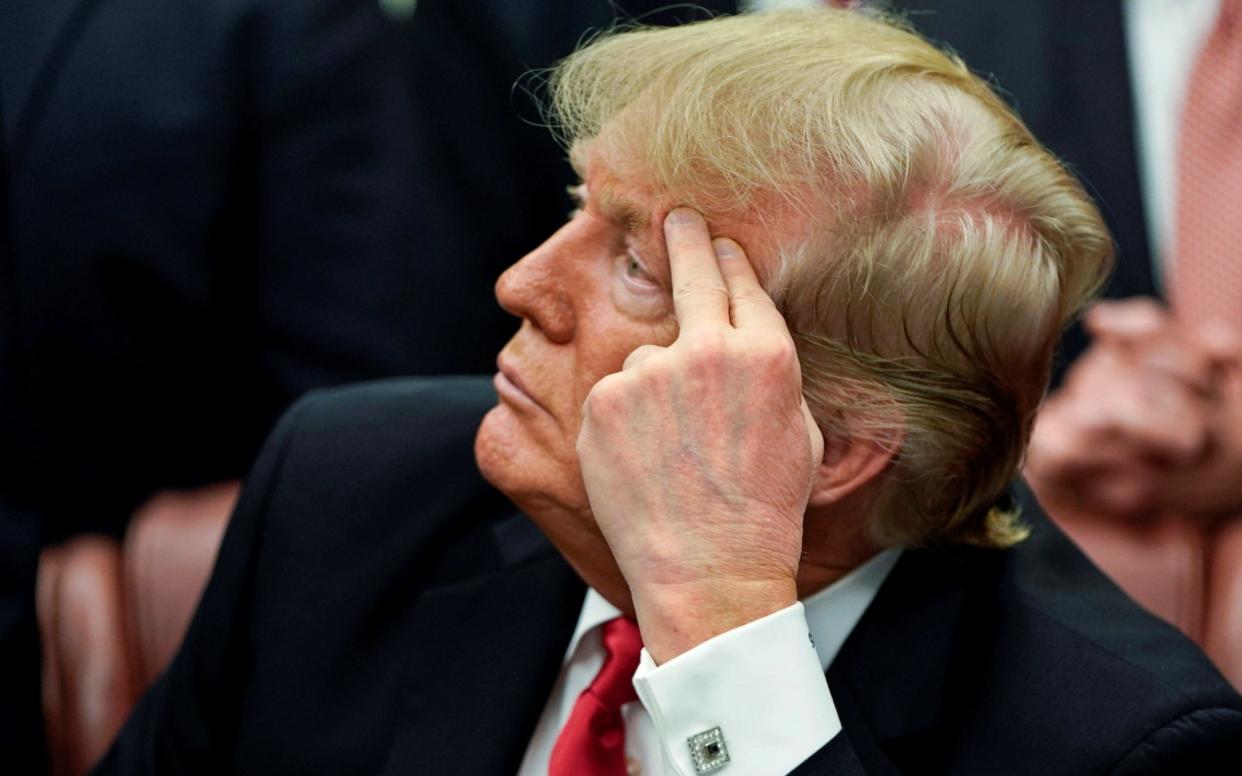Allies express alarm at Mattis resignation as senior Republicans turn on Trump

America's allies around the world yesterday expressed alarm at the resignation of Jim Mattis, Donald Trump's defence secretary, fearing it signalled a retreat into isolationism by the world's only superpower.
Senior Republican allies of Mr Trump in Washington also lambasted the president, accusing him of abdicating the US global leadership role.
Mr Mattis resigned on Thursday in protest at Mr Trump's decision to withdraw from Syria and draw down troops from Afghanistan.
In a lengthy resignation letter the four-star Marine general said US strength was "inextricably linked" to its alliances, a position seemingly at odds with Mr Trump's "America First" policy.
Yesterday, the Defence Secretary, Gavin Williamson, said he had developed a close relationship Gen Mattis, and would view his retirement “with sadness.”
Speaking aboard a Ukrainian warship in the Black sea port of Odessa, he also warned Isil has not yet been defeated, and saying Britain would "keep a foot on the throat" of the terror group despite Mr Trump's controversial decision.
“You’ve got to see what Jim has achieved in his time as defence secretary. He’s really been quite transformational in what the US armed forces have been able to do, extra investment going in and you’ve seen a massive increase in investment here in Europe. Jim has been an important part of that transformation,” Mr Williamson said.
In Berlin, Norbert Röttgen, chairman of the German parliament's foreign affairs committee, and an ally of Angela Merkel, said: "Mattis was the last man standing for what had been US foreign policy since World War II.
"With him gone this really marks a juncture in the Trump presidency. Now we have an unrestrained Trump, which is a dangerous signal for the year ahead."
Guy Verhofstadt, the liberal leader in the European Parliament, said it meant the European Union should push on with bolstering its own defence capabilities.

He said: "Mattis checked President Trump's worst instincts and was a strong supporter of Nato and multilateralism.
"His departure is bad news and makes it look like Putin’s plan is being delivered on."
Jim Molan, a senator in Australia, said it was a signal that "Australia must be self-reliant in its defence".
Mr Mattis had long differed with Mr Trump over issues including the future of the Afghanistan mission, but friends had said he would only leave office if he was fired or died.
However, the Syria withdrawal appeared to have been the last straw. After Mr Trump announced it on Twitter, Mr Mattis went to the White House and spent 45 minutes in the Oval Office trying, and failing, to change the president's mind. He then quickly resigned.
He was said to have been particularly incensed at the prospect of leaving America's Kurdish allies open to attack by Turkey.
Along with John Kelly, the outgoing White House chief of staff, and Rex Tillerson, Mr Trump's original secretary of state, Mr Mattis had been referred to by some Republicans in Congress as the "axis of adults". When Mr Mattis leaves in February they will all be gone from the administration.
In a rare public disagreement with the president Mitch McConnell, the Republican leader in the Senate, said he was "distressed" by Mr Mattis's departure.
He said: "I believe it’s essential that the United States maintain and strengthen the post-World War II alliances that have been carefully built by leaders in both parties.
"We must also maintain a clear-eyed understanding of our friends and foes, and recognise that nations like Russia are among the latter."
Senator Lindsey Graham, a high-profile ally of Mr Trump, accused the president of "surrendering" in Syria, and suggested it could lead to terrorists targeting America in a similar manner to the September 11, 2001 attacks..
He said allies, including the UK, were "scratching their heads right now".
Marco Rubio, the Republican senator, warned the US was "headed towards a series of grave policy errors which will endanger our nation, damage our alliances, and empower our adversaries".
However, opponents of Mr Mattis suggested his departure would allow Mr Trump to pursue the agenda he had been elected on.
Stephen Miller, senior adviser to the president, said: "The president has been very emphatic about the need to get a fair deal for the American taxpayer, and to make sure that we're only engaged in activities that are in our national interests."

